Memories from JYM's fourth post-war class, 1956-57
Kenneth Wiggins (JYM 1956-57) of Wayne State University spent his senior year with the Junior Year in Munich program in post-war Germany. Post-doc he went on to teach German language and literature at St. Thomas Aquinas College in Grand Rapids, Michigan.
In 1966, he was recruited by the CIA as a language specialist. He and his wife and their three daughters moved to Virginia, where they have resided ever since. His career with the agency spanned 22 years and took him to many foreign countries, in some of which he was able to continue his German studies. He tells here of his youthful adventures in Germany and Europe as one of 36 JYM students that year. He also gives insight into a time when a war-torn Munich and university was still in the process of rebuilding a whole decade later. Included are a few photos taken by his late classmate Ken Kurze.
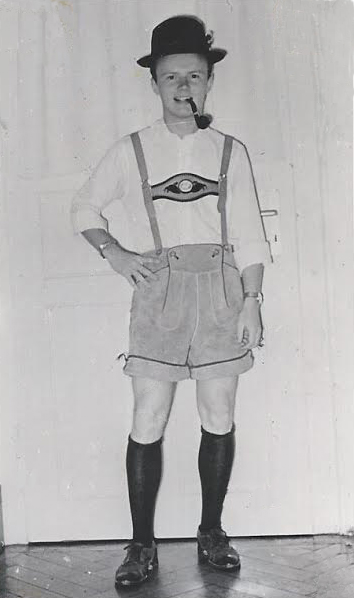
at his Munich Wohnheim, on Türkenstraße.
In the fall of 1955, I was starting my junior year at Wayne State University, majoring in German. One of my professors, John Ebelke, suggested that I consider participating in the Junior Year in Munich Program. As the principal founder of the JYM program and director, Ebelke was an encyclopedia of details concerning the program and quickly convinced me and my parents of the benefits to me as a German major if I participated the following year. He said JYM could offer me a partial scholarship to help with the tuition cost of $1,750, an enormous sum considering the prevailing cost of living.
I would be going abroad as a senior, but even so, I would fulfill the requirement of spending my final year "in residence", as WSU sponsored the JYM program. Students from other colleges and universities had to be juniors so they could return to their home institutions as seniors to graduate.
So, in the late summer of 1956, I traveled to NYC with my dad to board the RMS Queen Elizabeth, which would take me and 35 other JYM students from all over the country to Cherbourg. I was looking forward to an adventure unlike any other I had experienced. I would be crossing the Atlantic in a huge ocean liner, which could hold 3,000 passengers and crew and was longer than a football field. I would be visiting countries I had only read about and studying at one of the most prestigious universities in Germany, the Ludwig-Maximilians-Universität in Munich.
After finding our cabins, unpacking and whatnot, we followed our marching orders and assembled on deck for our daily orientation. Our program director, Dr. Eitel Wolf Dobert, from the University of Maryland, introduced himself and briefed us on the highlights of our journey to Munich via Paris. Dobert was a tall, lean, aristocratic gentleman, an imposing figure for sure.
We were assigned to third-class cabins with four bunk beds. That was okay, as it gave us a chance to bond with our bunkmates. As a diversion from living in cramped quarters, several of us made it a point to sneak into the first-class section each day and mingle with those passengers until the security guards politely escorted us back to our assigned deck.
Time passed quickly and in four days or so we were anchored in the English Channel outside Cherbourg harbor. The QE was too large to dock, so we and all the other passengers disembarking in Cherbourg were taken by tender to the port, where we were joined by Herr Hildebrand, the JYM office manager. From there we proceeded to the train station for the four-hour trip to Paris. Somehow Dobert and Hildebrand managed to keep us all together, no easy task, for sure.
We spent a couple of days in Paris, visiting the usual tourist sites and doing all the things that guys and gals in their late teens enjoy doing. Dobert and Hildebrand deserved a medal for not losing any of us; it must have been like herding cats.
The six-hour train trip to Munich aboard the Orient Express was something I had eagerly anticipated. There was nothing to remind me of Agatha Christie, but the train, with its comfortable furnishings and appointments, lived up to its reputation.
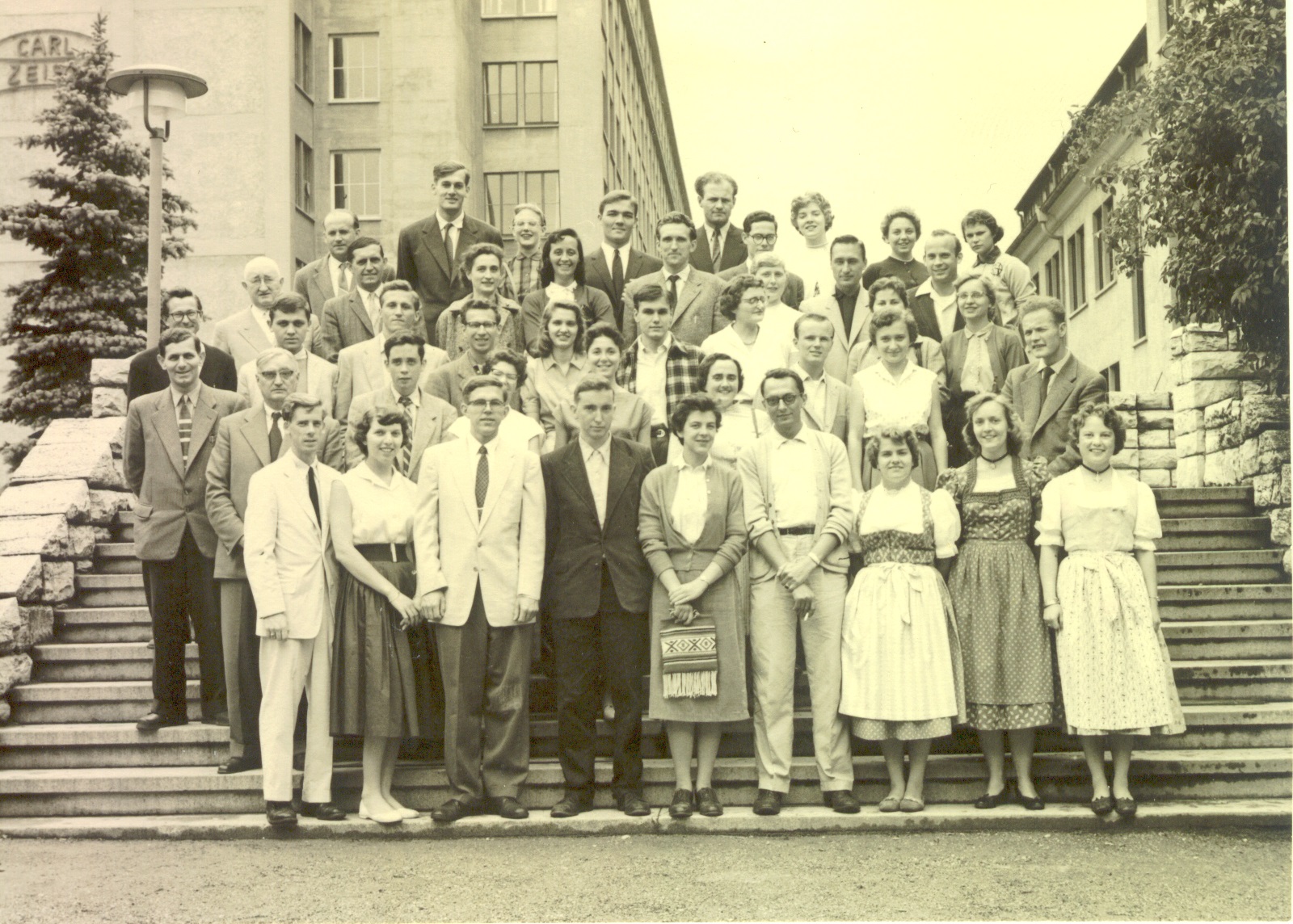
The day of our arrival in Munich is a blur after all these years, but a lot was accomplished, thanks to the preparations made by Dobert's office staff, many of whom were on hand to meet us at the train station. Local families greeted the students assigned to live with them and took them and their baggage to their homes, where they would spend the next 10 months in residence. Two of us, Fred and I, were taken to our rooms in a heritage-protected men's dormitory on the corner of Türkenstrasse and Schellingstrasse, just a couple of blocks from the university.
We were very fortunate to be assigned to a dorm. Students living in private residences had only limited contact with their landlords; we were in a building that housed a couple hundred German and foreign students, with whom we could enjoy community life and forge friendships that lasted well beyond our year in residence.
The dorm rooms were spartan. We were allowed only one hot shower a week and the only amenity was a small student lounge. The turn-of-the-century building had been destroyed in the war and rebuilt as a dorm in the early fifties under the Marshall Plan. It is still in use today, having been turned into one of the many modern dorms throughout the city operated by the Studentenwerk München, which provides about 11,000 rooms at last count.
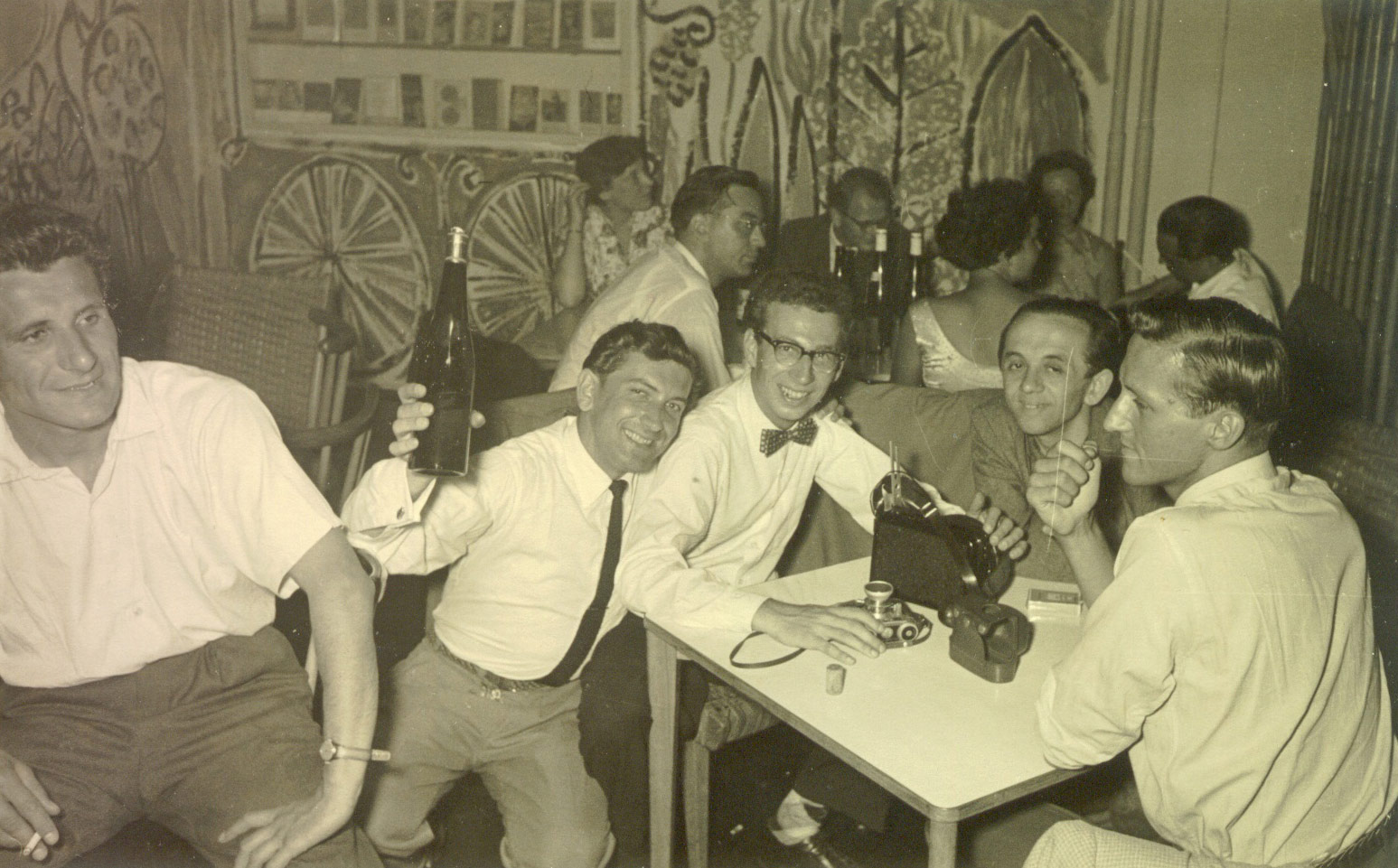
Unfortunately, I did not get along well with the dorm director. He had fought on the Western Front and been injured. He had no warm feelings for Americans. A German dorm buddy frequently interceded on my behalf by arranging Kaffeeklatsche for which I provided the very scarce coffee my parents sent me and he provided the sweets. The dormitory fees were paid by the JYM Program; I paid my other expenses out of a savings account that I established at the bank across the street. Occasionally my parents and relatives would send me a money order or care package of coffee, canned goods and sweets, which I would share with some of my friends in the dorm.
On our second day, we toured the city by bus. We were surprised at the number of buildings that were still uninhabitable. Dobert pointed out that around 50% of the city was destroyed or badly damaged during the war. The historic center was especially hard hit; its reconstruction was still underway. The university was severely damaged; about 70% of its campus lay in ruins at war's end. When it reopened in 1946, it could accommodate only a few thousand students and they had to meet in damaged, sometimes unheated classrooms. The students would also work as members of construction crews when they were not attending classes. By the mid-fifties, many of its facilities had been rebuilt or renovated, but there was still a lot of work to be done. Today about 60,000 students attend LMU, which has expanded well beyond its prewar boundaries. Another 40,000 students attend the Technical University, TUM.
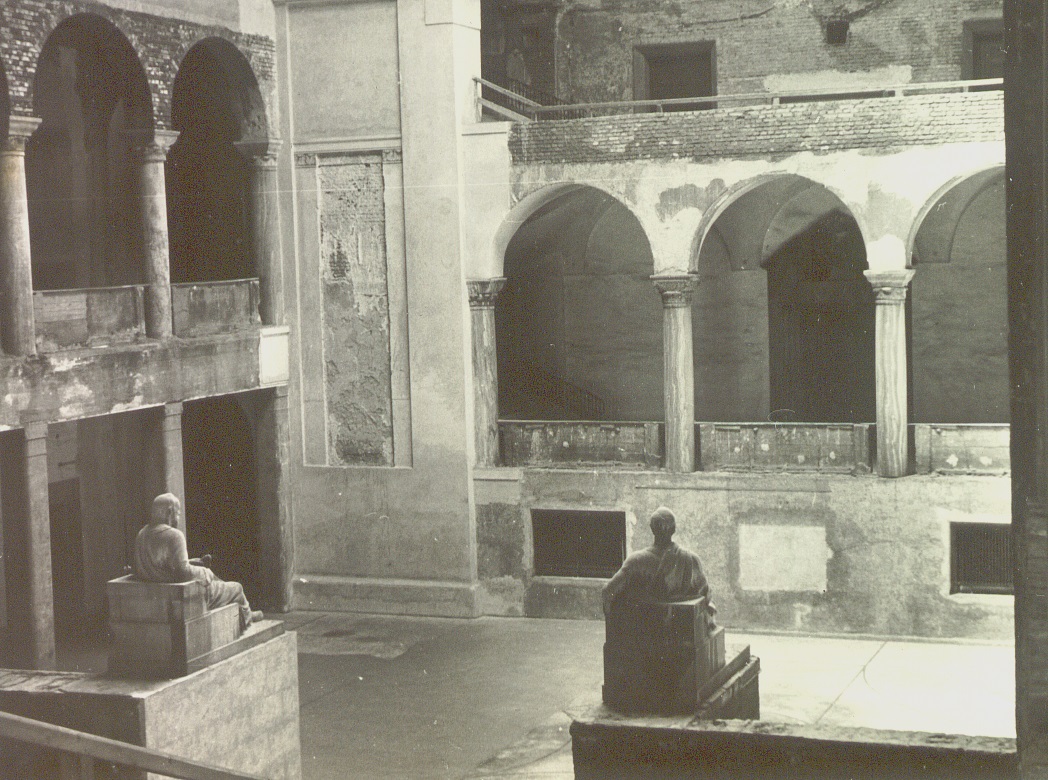
The next few days were spent in the cramped JYM headquarters on Amalienstrasse next to the university. There was just enough space for all of us and the staff to be there at one time. We received orientation to student life at LMU, took German language placement tests to determine who would take remedial German classes taught by LMU graduate students and poured through course catalogs with counselors to decide which classes would best fulfill our degree requirements back home.
As a senior majoring in German, I could concentrate on German language, literature and culture courses. I also signed up for a couple of history classes and even audited a basic English language class to experience their teaching methods. I was assigned a graduate student tutor, who attended some of my classes, clarified some content and tested me periodically so he could give me a transferable grade at the end of the semester. Some of my coursework even qualified for graduate credit when I returned to WSU.
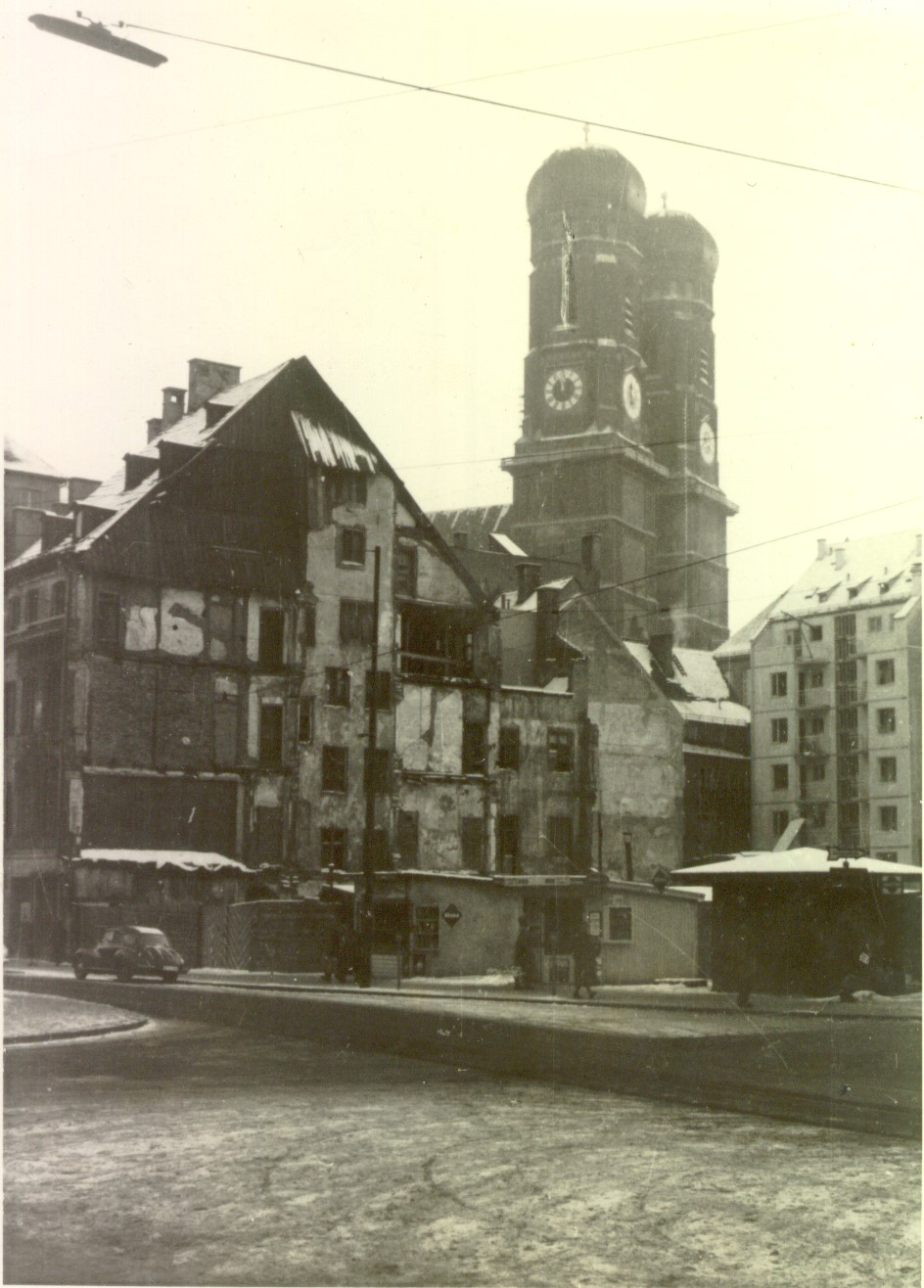
The rest of the year went by quickly and without incident. Some of us cashed in our QE return tickets and flew home instead. It was an even exchange. I will conclude with some of my more memorable experiences during the year, in no particular order.
I arrived in Munich with a letter of introduction to a well-to-do family living in a freestanding home on the outskirts of the city. I phoned them and they invited me to lunch. When they learned I was an amateur photographer, they asked me if I would photograph their daughter's upcoming wedding. Of course, I accepted. Fortunately, everything went well and I was paid handsomely by prevailing standards. By word of mouth, I received other jobs, which helped me get through the year financially.
Dobert scheduled a few bus trips on weekends and short holidays to nearby towns and cities. Among other places, we visited Bad Tölz, Oberammergau, Garmisch-Partenkirchen, Ettal Abbey and Berchtesgaden. These trips offered us some great sightseeing but also a rare opportunity to be together as a group.
On weekends with pleasant weather, a small group of us would bicycle to Andechs Abbey, near the Ammersee, which is famous for its brewery and good food. We also biked to nearby Starnberg, a picturesque town on the northern neck of Starnbergersee. Sometimes we would spend the night in a B&B if the price was right. It was here that we experienced a near disaster on an otherwise pleasant weekend. One of the guys claimed he knew how to sail, so we decided to pool our money together and rent a boat for an hour and get some fresh air. However, our sailor turned out not to be so experienced in docking, which we discovered as we were approaching the dock at full sail and men on the dock began yelling at us in unintelligible Bavarian. One of them switched to standard German and shouted, "seid ihr Jungs kundig?" (Do you guys know what you're doing?) The answer, unfortunately, was Nein!
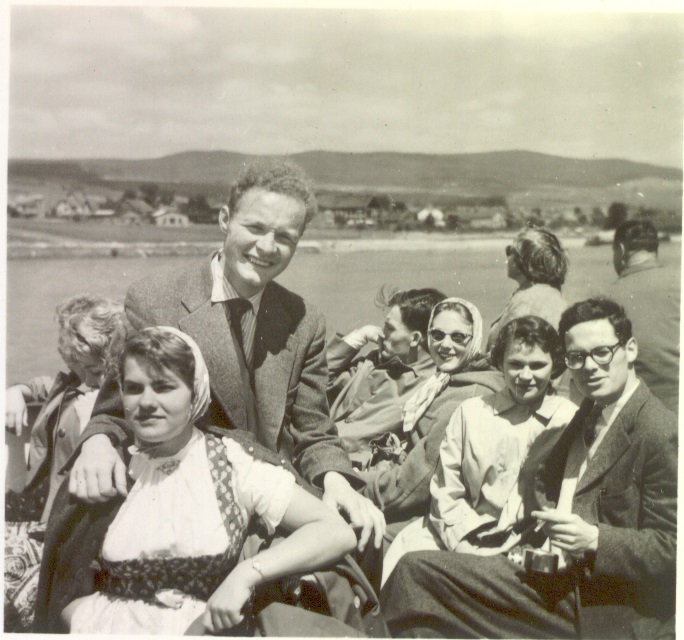
Suddenly, the guy at the tiller let go and released the sail and the boat slowed to a stop - just short of hitting a very expensive-looking boat. The men threw us a rope and pulled us to the dock. We scrambled out of the boat and high-tailed it to shore, where we met a young couple who had watched the debacle and were laughing their heads off. A narrow miss had a happy end: the couple invited us to spend the night at their B&B, where we enjoyed dinner and pleasant conversation.
There were several mandated school vacations in Bavaria and a two-month semester break (vorlesungsfreie Zeit) in universities. Fred (the other JYMer in the dorm) and I took advantage of these free periods and traveled as much as we could afford to. We traveled to Venice and on to three republics in the former Yugoslavia, visited several cities along the west coast of Italy and spent a week in Sicily with the family of an Italian dorm buddy. The highlight of our trip to Sicily was crossing the Alps in the Italian's three-wheeled Messerschmitt KR-200. I spent most of the semester break in Madrid, studying Spanish and attending bullfights.
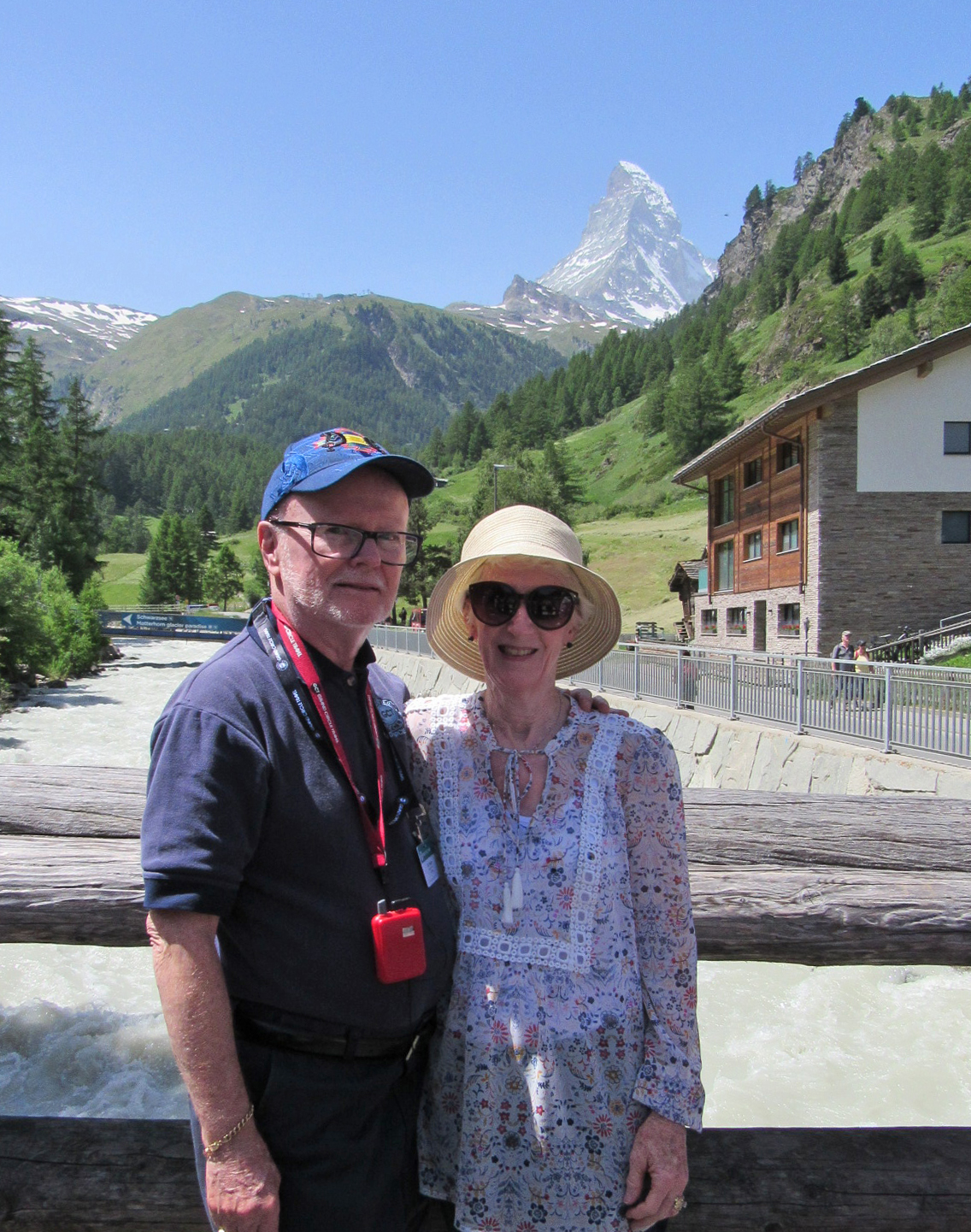
All told, the JYM experience changed my life in ways I could never have imagined at the time. I was able to visit places I would never have seen otherwise. My German improved immensely, which allowed me to pursue all my graduate studies as a teaching fellow, which in turn gave me much-needed experience as a college teacher. Finally, my experience abroad provided me with strong credentials to engage in a second career in the USG as an intelligence officer.
Whenever I visited Munich in later years, on business or for pleasure, memories were everywhere: walks in the beautiful English Garden; thoughts of life as a student in the post-war years; Fasching parades, costumes and parties; Oktoberfest; festive nights at the Hofbräuhaus; student parties on the roof of our dorm. They are too many to mention here, but all are good memories that have endured for decades.